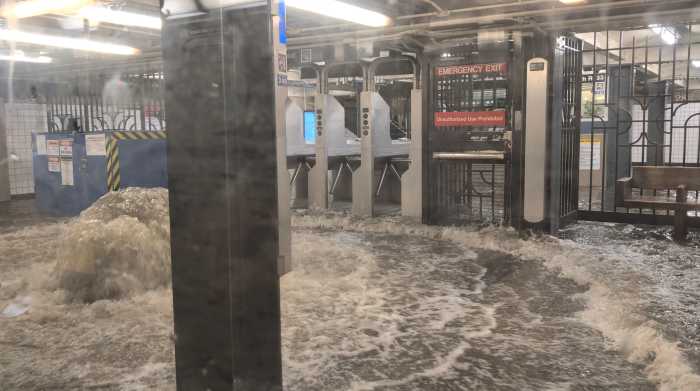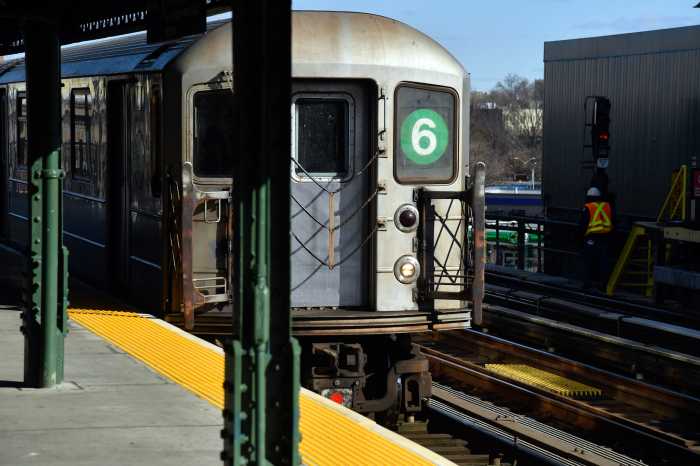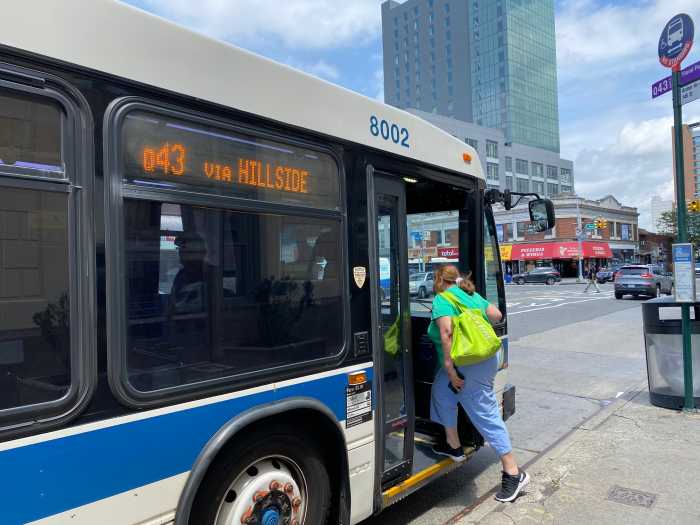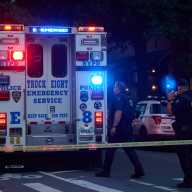
Gov. Andrew Cuomo said Thursday the city should pony up half the money needed to pay for the MTA’s plan to modernize transit service — a 10-year strategy unofficially estimated to cost more than $30 billion.
The demand stoked a fire under another nasty fight over funding a subway and bus system that has seen ridership drop as reliability has plunged.
“Who is going to pay? And that’s been the question for the past 80 years and that’s why you’ve seen the deterioration. I don’t think there’s anything more reasonable than 50/50,” Cuomo said during an unrelated news conference.
“My position is, I don’t want to fight, I don’t want to argue,” he said.
Yet fight is exactly what he’s got.
Eric Phillips, a mayoral spokesman, criticized the governor for his stewardship of the MTA and for failing to find a significant new source of revenue for the authority during budget negotiations.
“After failing miserably to secure a sustainable revenue source, we knew the Governor would be back for more,” Phillips said in a statement. “The Mayor has contributed a record amount bailing out Governor Cuomo’s subway mismanagement. Rather than constantly asking for more from all our riders and taxpayers, the Governor should pass a millionaires tax to fix the trains he’s run into the ground.”
While the state and the governor control the MTA, Cuomo argues that the city must fund NYC Transit’s capital construction — even though city residents and workers already contribute nearly 70 percent of the MTA’s $16 billion annual revenue.
The de Blasio administration has for years fought giving more money to the MTA, reasoning that state lawmakers are the ones who can and should create new revenue streams for the state agency.
This could be the third drawn-out fight over funding the MTA in about four years. The governor and the mayor fought over funding the MTA’s Subway Action Plan, an $800 million enterprise, as well as the last MTA capital plan, the agency’s five-year blueprint for capital construction projects.
This time around, the need to fund the MTA is even more urgent. And the modernization plan to turn around subway and bus service, called Fast Forward, is highly regarded by nearly everyone. Still, the money argument hasn’t changed.
Budget watchdogs and transit advocates side with the mayor. Charles Brecher, a senior adviser at the Citizens Budget Commission, clarified first that the idea of either the city or state funding the agency is misleading.
“The money comes from taxpayers. It doesn’t come from the city or the state. Ultimately the city and the state are not banks; they’re taxing entities. They levy taxes,” Brecher said.
As regional commuters working in the city benefit from the subways and buses every day, Brecher and the citizens committee believe that the state, not the city, should institute new taxes to raise revenue for the MTA’s Fast Forward plan. The city should be solely on the hook to finance policies directly beneficial to city residents — like discounted fares for schoolchildren or low-income residents, Brecher said.
“The MTA should be financed on a regional or statewide basis and it’s only the state that has the legal authority to levy regional taxes,” Brecher said. “The city taxpayers should pay — but they should pay through their contribution to regional taxes, which they already do.”
Still, Cuomo again cited a 1981 law to argue that the city is responsible for funding capital work for the subways and buses. The law created a capital plan review board for the MTA and reads that “the city of New York is requred to provide for the capital needs” of MTA Transit.
Dani Lever, a spokeswoman for the governor, shot back at the mayor on Twitter, referencing NYCHA’s lead paint scandal.
“Well, we already know that the mayor thinks there are ‘bigger, sharper problems’ than the poisoning of NYC’s children and fixing the subways that millions of his constituents ride each day and which he is legally responsible for funding,” she said.































